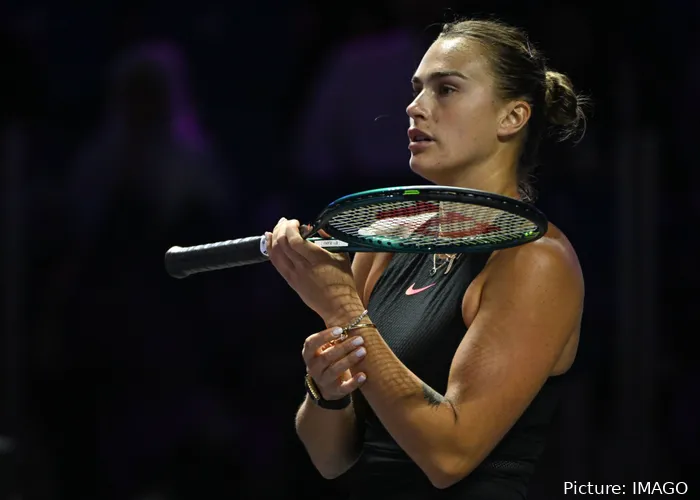
Aryna Sabalenka’s journey to becoming a three-time Grand Slam champion has been marked by significant coaching decisions that have shaped her career. One of the most intriguing “what if” scenarios revolves around Dinara Safina, the former World No. 1, who was approached to coach Sabalenka in 2019. At the time, Sabalenka had just ended her partnership with Dmitry Tursunov, the coach who had played a pivotal role in elevating her game to elite levels. While Sabalenka’s trajectory has led her to impressive heights under different mentorship, the possibility of Safina’s involvement adds an interesting layer to her story.
The Approach and Decision: A Missed Opportunity?
In 2019, Sabalenka found herself in a transitional period. She had recently parted ways with Tursunov, a coach who had been instrumental in her rise to prominence on the WTA Tour. With the US Open fast approaching, Sabalenka urgently needed to fill the coaching void. It was during this critical juncture that her agent reached out to Dinara Safina, a former World No. 1 and two-time French Open finalist, to explore the possibility of her stepping into the role.
Safina, reflecting on this moment, shared her perspective in a recent interview. “We talked about Aryna in 2019, right before the US Open,” Safina told Championat. “She had just finished working with Dmitry Tursunov, and her agent called me, presenting the opportunity. However, it was a last-minute request, requiring me to fly out immediately and start preparing her for the US Open. I had to decline because I couldn’t commit on such short notice.”
Safina’s response was rooted in understanding the demands of the situation. “I understand Aryna’s urgency,” she continued. “As a player, I behaved similarly. I remember saying, ‘I need a coach tomorrow!’ But coaching is a commitment that requires preparation and planning. Jumping in at the last minute wouldn’t have been fair to either of us.”
Instead, Sabalenka turned to Anton Dubrov, a decision that would prove to be a turning point in her career. Dubrov, who had been part of her team previously in a supporting role, stepped up as her head coach. Under his guidance, Sabalenka refined her game, overcame mental hurdles, and eventually claimed three Grand Slam titles, including the Australian Open in 2023.
A Parallel Path: Safina and Mirra Andreeva
Interestingly, Sabalenka wasn’t the only rising star who almost worked with Safina. The Russian tennis legend also revealed that she was considered for the coaching role of Mirra Andreeva, one of the sport’s most promising young talents. Andreeva eventually teamed up with Conchita Martinez, a decision that has also borne fruit, but the possibility of Safina guiding her career adds another intriguing “what if” to tennis history.
“They were looking for a coach for Mirra,” Safina explained. “Her agent reached out to several specialists, including me. The offer was appealing, but I wasn’t ready to commit to the extensive travel schedule that coaching a young talent like Mirra would entail. It would have been a fascinating opportunity, but in the end, Conchita Martinez took on the role. She’s doing an excellent job, providing the nuanced guidance Mirra needs at this stage of her career.”
Safina praised Martinez’s approach to coaching Andreeva. “Conchita helps Mirra with the fine details—adjusting angles, timing the ball better, and adding tactical combinations that become automatic in crucial moments. These small tweaks can make a significant difference at the highest level.”
Reflections on Consistency in Modern Tennis
Beyond the coaching stories, Safina offered a broader perspective on the state of women’s tennis today compared to her era. She noted a distinct difference in the level of consistency among top players. “In my time, the top players were remarkably consistent,” she observed. “You had Serena and Venus Williams, Lindsay Davenport, Amélie Mauresmo, Justine Henin, Maria Sharapova, and Kim Clijsters. These players maintained a high level throughout the season. Easy losses were rare, and the competition within the top 10 was incredibly fierce.”
In contrast, Safina sees a different landscape in today’s WTA Tour. “Now, the situation is different. Players can have three or four poor tournaments and still return to the top 10. There are talented players like Coco Gauff and Jessica Pegula, but they struggle with consistency. Only Aryna Sabalenka and Iga Świątek have managed to play an entire season without significant slumps.”
This observation underscores the achievement of Sabalenka and Świątek in maintaining their dominance in a highly competitive and unpredictable environment. Their consistency sets them apart and highlights the mental and physical resilience required to stay at the top.
What Could Have Been: A Fascinating “What If”
The near collaboration between Aryna Sabalenka and Dinara Safina is a reminder of how pivotal coaching decisions can be in shaping a player’s career. While Sabalenka’s partnership with Anton Dubrov has been immensely successful, it’s intriguing to imagine how her journey might have unfolded under Safina’s guidance. Would Safina’s experience and insights have accelerated Sabalenka’s rise, or perhaps steered her in a different direction?
Similarly, Safina’s almost-coaching role with Mirra Andreeva adds another layer of curiosity. Both stories reflect the intricate dynamics of coaching in professional tennis—where timing, preparation, and compatibility play crucial roles.
As Sabalenka continues to build on her success, and as Andreeva develops under Martinez’s tutelage, the influence of past decisions and near misses remains a fascinating subplot in their ongoing narratives. For now, tennis fans can only speculate about what might have been, while appreciating the journeys these players continue to forge on the global stage.
Leave a Reply